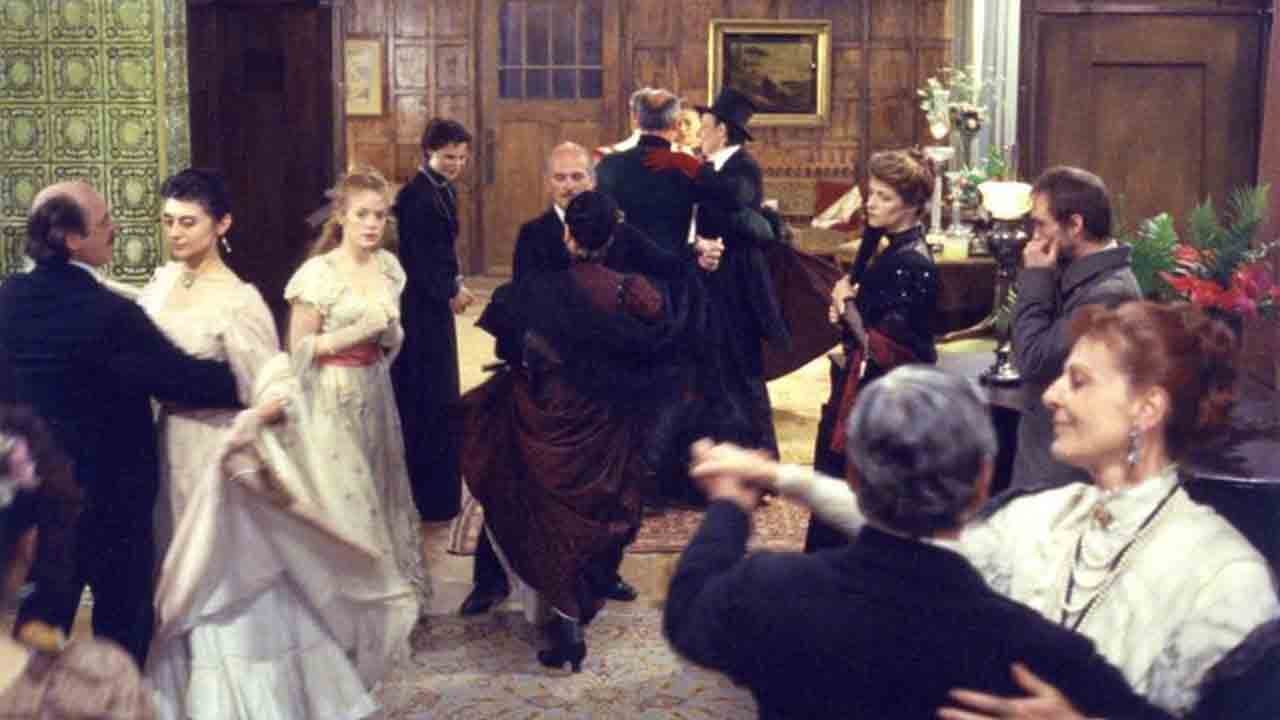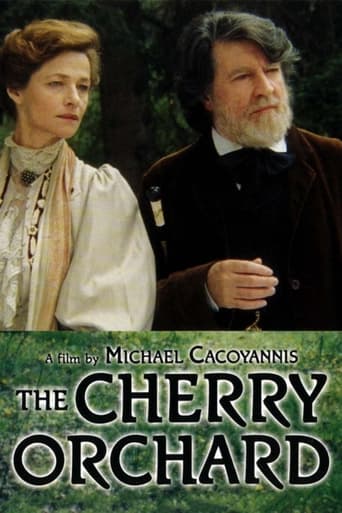Hellen
I like the storyline of this show,it attract me so much
Cubussoli
Very very predictable, including the post credit scene !!!
Ava-Grace Willis
Story: It's very simple but honestly that is fine.
Cheryl
A clunky actioner with a handful of cool moments.
PWNYCNY
In this era of gratuitous special effects and uneven, even shoddy, production, one cannot depend on Hollywood to successfully transfer a stage play to the screen. This movie is partially the exception, as the movie amazingly pulls itself together in midstream to become a commendable work of art. The first part of this movie is a cinematic disaster. It's boring, slow, and muddled, with a terrible first ten minutes which is supposed to provide some background information about some of the main characters but which is totally disconnected from the main body of the story itself which takes place in a completely different venue. Then as this movie is heading toward a complete cinematic breakdown it amazingly recovers its strength and vitality and becomes crisp, sharp, focused and coherent, conveying a poignant story about torment and suffering in time of change. From that point on all the performances are great, especially that of Michael Gough, Alan Bates and the beautiful Charlotte Rampling who succeeds in capturing the essence of the woman whose whole world is being turned upside down. But despite the strong finish, that one first has to endure a truly bad start before getting to the good part makes this movie a tedious cinematic experience.
Fisher L. Forrest
Michael Cacoyannis seems strangely reluctant to tell this story in a straightforward, understandable fashion. This ridiculously edited film rates a 7 out of 10 only because it does, in its idiosyncratic way, convey something of the story of a Russian woman, of the landed gentry, fallen on hard times, who is desperately seeking to preserve the ownership of her estate, on which is an ancient and beloved cherry orchard. If she is forced to sell, the orchard will be cut down and the estate "developed" into "affordable housing". So what else is new, eh?By all, this is the choppiest editing and directing style I have ever encountered. Chekhov's play is certainly not constructed this way. There is no effort to introduce characters in an orderly fashion so that one may get to know who they are, and what their relationships and motivations are. Some of this eventually emerges if you are patient and alert enough, but don't blink! Some of the cast work is excellent. They must have been frustrated, though, if they knew what kind of editing would appear in the final cut.
baker-9
Chekhov's plays have generally resisted film and TV adaptations: Sidney Lumet's "Sea Gull" was lumpy and not well cast, and even the Russian film adaptations have been turgid affairs.Michael Cacoyannis' version of "The Cherry Orchard" (originally titled "Varya" after one of the main characters), is better than Lumet's film largely because it's better acted in general. But the direction is sometimes fussy, sometimes leaden - the pacing becomes more and more turgid as the film progresses. The final 40 minutes or so become very tedious. Plus there's an unnecessary prologue in Paris - an obvious attempt to open up the play, but it goes on much too long.Charlotte Rampling does very well as Madame Ranyevskaya, a near-penniless aristocrat who returns to her family estate as it is about to be auctioned after a default on the mortgage. Rampling clearly shows us a aging woman who is spoiled, charming, childish, delusional, sometimes haughty and condescending, and feckless - a person who never learned how to manage money because she never felt she had to. Her performance makes this woman less conventionally sympathetic than others in the role - which is fine. There are times when her performance is undercut by some jarring editing where her mood swings from one extreme to another.The rest of the cast is quite fine: Alan Bates as Ranyevskaya's equally feckless and lazy brother Gayev shows us the man who knows full well his coming fate, yet goes through fits of denial to coddle his sister and the others; Michael Gough as the increasingly senile family servant Fiers; Tushka Bergen as Ranyevskaya's daughter Anya.The best acting comes from Katrin Cartlidge as the hapless, lovesick, foster daughter Varya, a soul sister to Sonia of Uncle Vanya; and Owen Teale (who was superb with Janet McTeer onstage in "A Doll's House") as Lopahin, a former peasant whose family worked on Ranyevskaya's farm but who has now become a successful businessman. His efforts to convince the fading aristocrats to save themselves by selling the estate fall on deaf ears, so he decides on a different plan of action.I would recommend seeing this only to people who are familiar with the play. First-timers would be better off seeking out a good stage production (lots of luck there) as Chekhov has always worked better there.
jwarthen-3
Cacoyannis began his career filming Greek tragedies five decades ago. Anyone seeing his production of Chekhov's wonderful play knows he adores this work: the discerning casting, the use of Tchaikovsky's little-known piano pieces. Best of all is the look of the production-- its costuming and lighting have the quality of delicate homage. Watch for scenes like the arrival of auction-bidders in a muddy street midway through the film-- a bit of period recreation on a par with Coppola and Scorsese. Chekhov's brilliant bits of stage-business are treasured here: Varya's clobbering her wished-for fiance with a door-slam, Epikhodov's goofs, Yasha's mother-problem, and especially the family's sitting gravely down together before their dispersal. These are lovingly done, and if citing them here is meaningless to those who haven't read the play, I'm afraid the film will mean as little to them, especially on videotape, where the exquisite visuals won't count for much. The acting can't sustain novices-- the cast, especially the males, show the effects of limited rehearsal time, sliding in and out of cohesion. The exceptions to that are Katrin Cartlidge (in a role that often stands-out in stage productions), Ian McNeice, and Michael Gough, delivering the finest performance I have seen from his 50+ years of movie-acting-- acting-teachers should march students to see CHERRY ORCHARD to hear how Gough reads a choice line like, "Now I can die." Cacoyannis nodded in spots: the weird accents affected by the lower-class characters add nothing, and the hammy Act II beggar-- one wants to thrash him. This is not a great film. But the play it serves may be the past century's greatest. At a time when American theaters cannot afford large-cast period plays, a Chekhov-fan feels special gratitude for this production.

